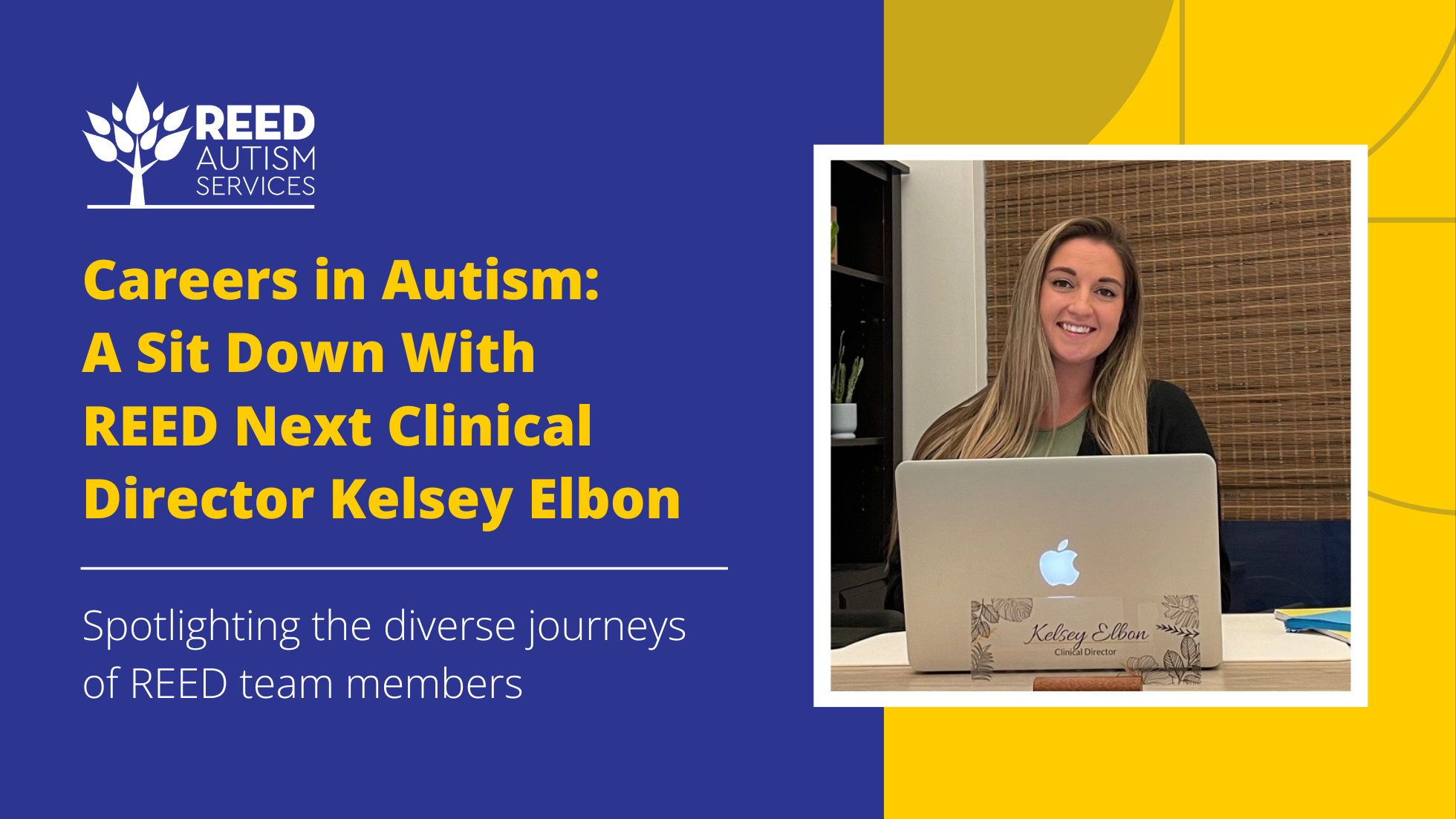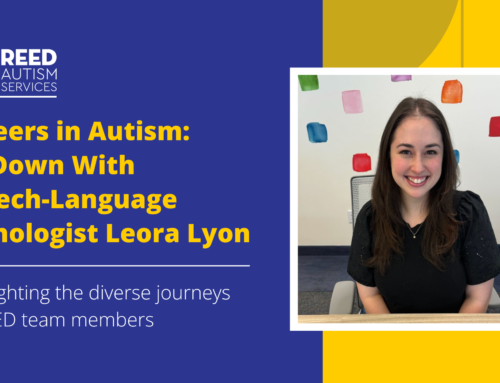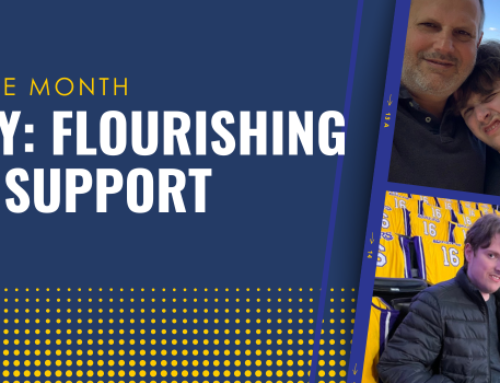In our ongoing “Careers in Autism” series we spotlight the diverse journeys of REED team members, each bringing a unique story and passion to their role at REED. In our latest installment, REED Next Clinical Director Kelsey Elbon, MA, BCBA, emphasizes the pressing need for quality adult services within the autism community, and shares why she’s grateful for her work.
What inspired you to pursue a career in autism?
After college, I began my first job as a Direct Support Professional (DSP) at an intensive residential program. At the time, I wasn’t sure of my career path, but I quickly fell in love with the field and couldn’t imagine doing anything else. I remember coming home every day and feeling immensely proud of our client’s successes. I was fortunate to receive amazing hands-on experience and supervision in that role. Eventually, I moved from DSP to ABA Specialist, and later, after completing a master’s degree in ABA, I became a BCBA. I can’t imagine doing anything else!
What are the most rewarding aspects of your job at REED?
I’m thankful to have the opportunity to come to work and know I positively impact the lives of the people we serve every day. Whether it’s enhancing functional communication skills, promoting independence in daily living skills, or effectively reducing challenging behavior over time, there is no greater feeling than achieving goals that enable our clients to live more independently, safely, and fulfilled.
What advice would you give to someone aspiring to pursue a career in autism?
Take that entry-level position! Hands-on experience gained as a DSP, applied behavior analysis (ABA) instructor, clinical associate, or paraprofessional is invaluable. I’ve observed that individuals who have gathered quality hands-on experience in these ABA-based roles often perform better in future careers as BCBAs, educators, program managers, and more. It’s essential to explore your interests within the field and make solid connections with those who can support your career goals. For instance, if you’re drawn to the clinical aspects, seek guidance from a BCBA through one-on-one meetings. Don’t be afraid to ask questions.
What skills and qualities do you consider essential for success in a career in autism?
Patience, creative thinking, flexibility, and compassion are essential. There will be great days and difficult ones. What matters most is displaying patience and kindness. When clients become overwhelmed or frustrated, and challenging behaviors may emerge, it’s crucial to take a step back and remember that they are not doing this to bother you, to ruin your day, or for “no reason”. Behavior serves a purpose, and it’s our responsibility to analyze these situations and devise solutions. Facing unexpected challenging behavior, for instance, requires making on-the-spot decisions. This demands someone who can be creative, flexible, and resourceful.
Where do you think the need is greatest in autism services? What potential areas within the field should people consider?
There is a significant need in every area of autism services, but I cannot stress enough the importance of quality and accessible adult services for those on the spectrum. Disparities in funding can significantly impact the quality of care available, resulting in limited resources that profoundly affect an individual’s quality of life. It’s important to remember that autism doesn’t go away once a person turns 21. Symptoms may become more challenging to manage in adulthood. This next chapter of life involves many changes—such as living away from home, attending college, entering the workforce, and making new friends—that can be particularly overwhelming for those with ASD. Increasing the number of qualified individuals in the field of adult services is essential to address the complex needs of a growing autism community.
Considering a career in autism? Learn more about the many opportunities at REED Autism Services.







